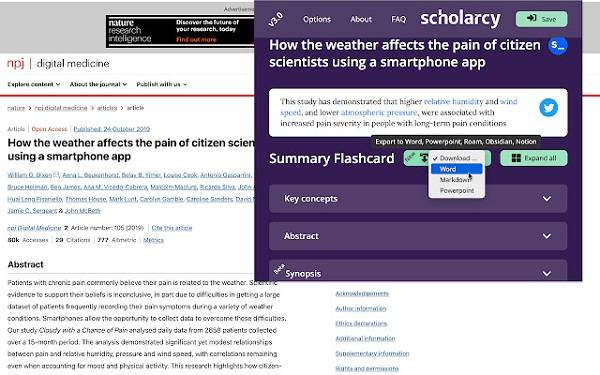
Introduction
Overview of AI in Research Papers
AI has significantly impacted the landscape of academic research by revolutionizing the way research papers are generated. Machine Learning algorithms are being used to analyze large datasets and extract valuable insights, aiding researchers in making data-driven decisions. Natural Language Processing techniques have enabled the creation of automated tools that can assist in writing, reviewing, and editing research papers. AI-powered citation tools help researchers properly cite references and organize their bibliography efficiently.Role of AI in Academic Research
In academic research, AI plays a crucial role in enhancing the productivity and quality of research outcomes. Researchers can leverage AI-powered analytics to uncover hidden patterns in data, leading to more insightful discoveries. Automated literature reviews powered by AI algorithms assist researchers in understanding existing studies and identifying research gaps. Furthermore, AI tools aid in plagiarism detection and ensure the originality and integrity of research work. AI-driven collaboration platforms facilitate seamless communication and collaboration among researchers, fostering innovation and knowledge exchange.
Importance of Research Paper Summaries
Benefits of Summarizing Research Papers
Efficient research paper summaries provide a concise overview of essential findings, enabling readers to grasp key insights quickly. Summaries aid researchers in understanding the significance of a study without the need to read the entire paper, saving time and enhancing productivity. Additionally, well-crafted summaries help in disseminating research outcomes to a broader audience, including industry professionals and policymakers, fostering knowledge dissemination and uptake.Use of AI in Generating Paper Summaries
AI-driven tools are revolutionizing the process of generating research paper summaries by employing advanced Natural Language Processing algorithms. These tools can extract key information from papers, condense it into a coherent summary, and maintain the original context. AI-generated summaries enhance the accessibility of research findings and support efficient information retrieval, benefiting both researchers and readers.
Machine Learning Algorithms for Summarization
Key Machine Learning Techniques for Paper Summarization
In the realm of research paper summaries, machine learning algorithms play a crucial role. Techniques such as text summarization, sentence embedding, and abstractive summarization are commonly employed. These algorithms analyze and condense large volumes of text, ensuring that the summary captures the essence of the research without losing key information.Comparison of Algorithms for AI-Powered Summaries
| Algorithm | Description |By comparing these algorithms, researchers can determine the best approach for creating accurate and informative AI-powered research paper summaries.

Neural Network Applications in Paper Summarization
Neural Networks for Research Paper Summaries
In the realm of research paper summarization, neural network models have gained prominence for their ability to generate concise and informative summaries. These models excel at capturing intricate relationships within text data and producing coherent summaries that retain the original context. Employing neural networks in summarization tasks allows for more nuanced understanding of complex research topics, enhancing the efficiency and accuracy of the summarization process.
Advantages and Challenges of Neural Networks in Summarization
Neural networks offer advantages such as their capacity to handle large volumes of data and learn complex patterns effectively. However, challenges like the potential for overfitting and the need for substantial computational resources exist. Balancing these factors is essential in optimizing neural network performance for paper summarization tasks.

Natural Language Processing (NLP) in Summarizing Research Papers
NLP Techniques for Text Summarization
Utilizing Natural Language Processing (NLP) in research paper summarization involves implementing various techniques that enable machines to understand and summarize text effectively. NLP techniques like text preprocessing, word tokenization, and semantic analysis help extract key information from research papers and generate concise summaries. These techniques enhance the summarization process by enabling algorithms to grasp the context and main concepts of the papers accurately.
Enhancing Research Paper Summaries with NLP
Integrating NLP in research paper summarization enhances the quality and efficiency of summarization tasks. By leveraging NLP algorithms, researchers can summarize vast amounts of text data quickly and accurately. NLP helps in recognizing key phrases, relationships between sentences, and central themes in research papers, resulting in more informative and coherent summaries.
Comments
Post a Comment